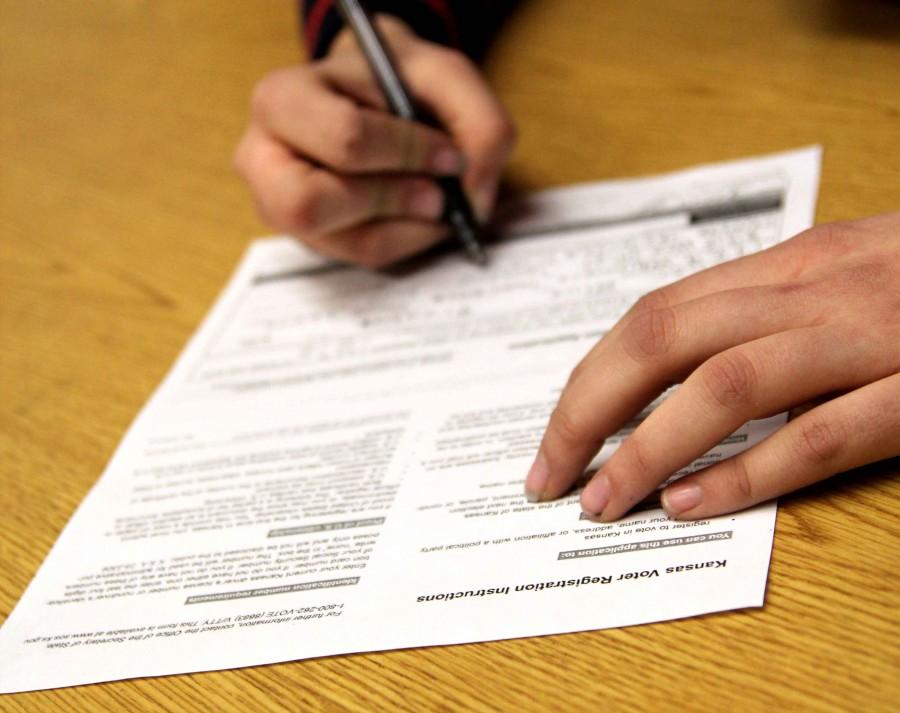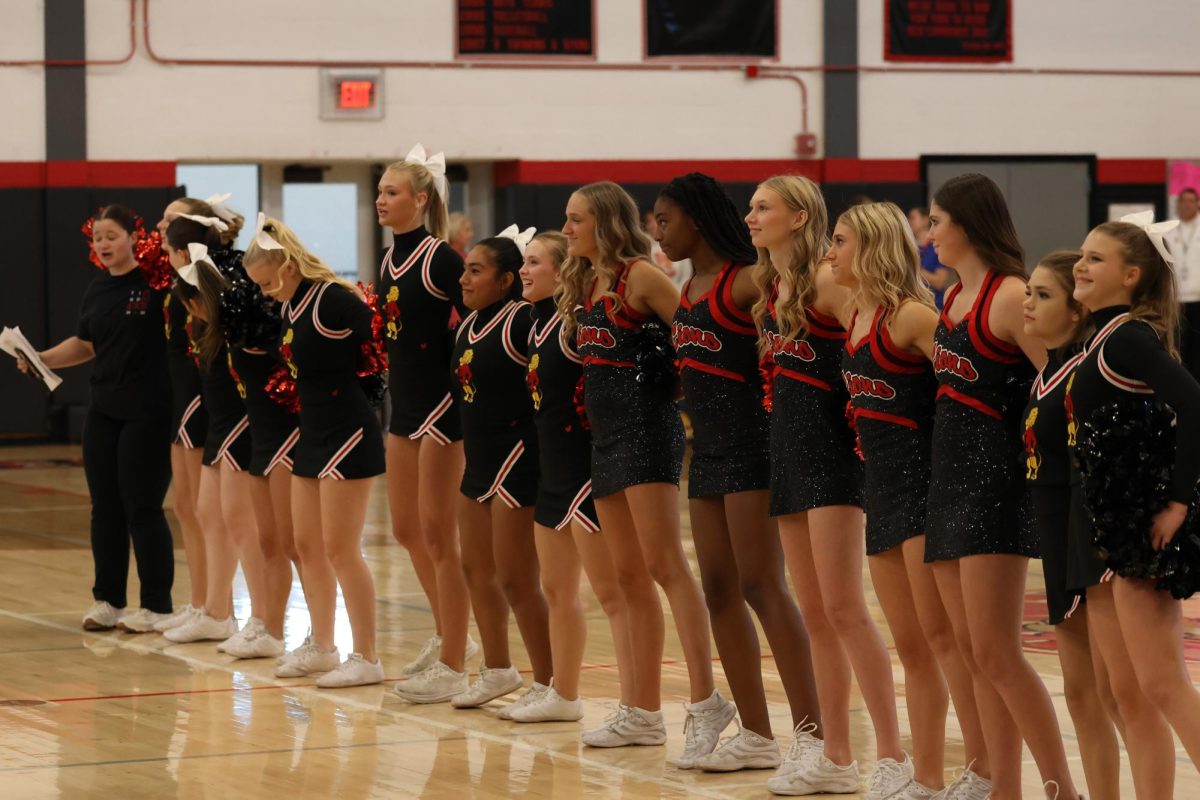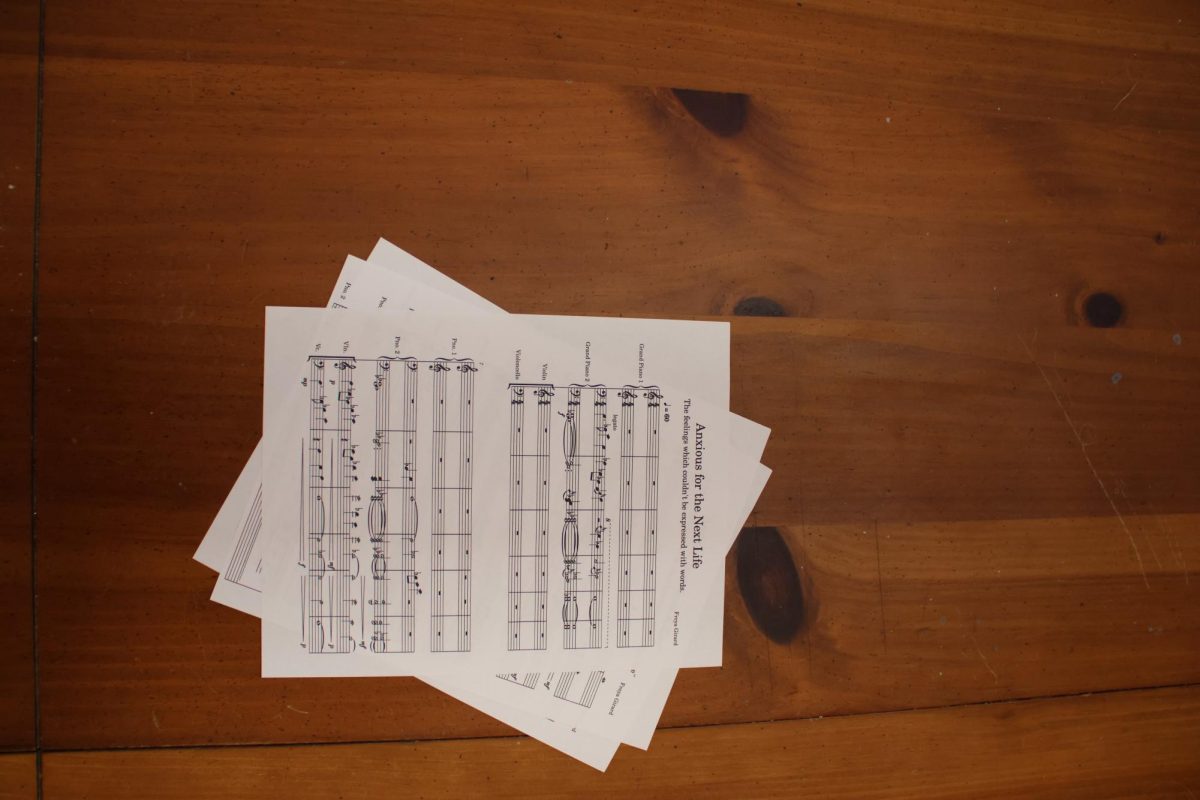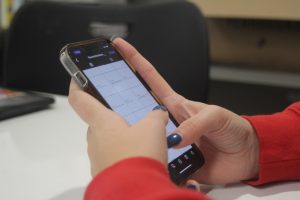State laws hinder students from voting
Young people among least active group for voter participation, recent identification laws are partially to blame
Kansas voter identification laws passed in 2013 disallowed the use of a driver’s license as form of identification while registering to vote at the Department of Motor Vehicles. As result, fewer young people are getting registered to vote or participating in elections.
February 11, 2016
Seniors in U.S. Government classes were visited by the League of Women Voters this fall to learn about and participate in voter registration.
“All you had to do was bring in a form and your birth certificate and then your passport if you had it,” senior Darian Barr, who signed up to vote with the LWV in Robert Conlon’s government class, said. “That was it.”
Though some had no trouble with the process, statistics have shown that young people have some of the biggest obstacles while registering for and participating in elections in the state of Kansas.
Out of the 319 students that Lucille King, the Vice President of the Douglas County League of Women Voters, spoke to at LHS, Free State and the College and Career Center, only 92 were able to complete their registration.
“We’re finding often that less than half [of young people] will register to vote, and then less than half of those will actually vote,” King said.
This low rate of voting among young people have stirred a controversy over Kansas voter identification laws.
Kansas voter identification laws that were enacted in 2013 require anyone who registers to vote to complete a registration form and present proof of citizenship, such as a passport or birth certificate, when they register. Before the 2013 law, people who registered to vote did not need to provide proof of citizenship.
“This is Kansas law; it was passed by the Kansas Legislature,” Craig McCullah, the Kansas Secretary of State’s Director of Public Affairs and Human Resources, said in an email. “If you do not complete both steps you are NOT registered to vote.”
In a more recent law supported by Secretary of State Kris Kobach, once someone brings in a completed voter registration form, they then have 90 days to provide proof of citizenship. During those 90 days they are put on a suspense list.
“[After the 90 days] they have to go fill out another half page form and still will need to provide proof of citizenship,” McCullah said. “If an individual fills out the registration form again, they’ll get another 90 days to provide proof of citizenship.”
County election offices call and send mail to those on the suspense list to remind them that their registration is not complete.
“The benefit of having a 90 day deadline is so county election offices can stop wasting time and money contacting people who haven’t, and probably don’t intend on, completing their voter registration,” McCullah said.
Statistics provided by the League of Women Voters show that as of Oct. 30, 2013, of 827 people on the suspense list in Douglas County 55 percent of them were younger than 25.
Paul Davis, who ran for governor in 2014, argues that the reason for these statistics is that the laws put a burden on citizens.
“It’s not to say you can’t have the proof of citizenship law,” Davis said. “But I think the fundamental problem it has is it places the burden [of proving citizenship] on the individual when it should be placed on the government.”
In September, Davis filed a lawsuit against Kobach, claiming that removing people from the suspense list was violating the National Voter Registration Act that set guidelines for why someone can be removed from the list. Davis is also hoping to strike down the law that states that proof of citizenship is necessary.
“I think what a lot of this comes down to is there’s a sort of school of thought that Kris Kobach and others have subscribed to,” Davis said. “That voting is a privilege and that if you have to run through some hoops and be able to do that then that’s okay […] I can subscribe to the view that voting is a right.”
Ultimately, the law, as of now, states that in order to vote proof of citizenship is necessary and this law is what Davis disagrees with. Secretary of State supports the law in the current form.
“There’s no doubt that it’s disenfranchising young people,” Davis said. “There’s also some evidence that it is having an adverse effect on minorities and people that are low income who just don’t have the ability to go out and find their birth certificate as easy as others do.”
While young voters are shown statistically to have a harder time making it to the polls, when they do, they make a considerate impact.
“All the data we’ve seen is that millennials are generally more concerned about civil rights, environmental protections, equal pay and pay that provides enough to live on,” King said. “And they care about those things a lot more than older people so if more young people were voting… I think it would change who is elected and what the policies are.”
Data such as this proves that government classes taught in high schools by teachers like Robert Conlon have made an impact on students lives and encouraged them to take part in their community.
“I think overall they [students] are excited that they have a say so and they understand, from my class and other classes, why we talk about issues and why they should be important to them.”
While statistics may show that voter turnout among youth is low, many students understand the weight of their vote.
“Of course it does [matter],” senior Amber Jameson said. “It’s a civic duty, it’s about being heard, and if you don’t vote, you’re not going to be heard.”















